Nautilus

How does chronic noise exposure impact our health?
A noisy environment has many underrecognized negative impacts that have little to do with hearing per se. Chronic noise exposure, ...

How our brains reward us during sleep to reinforce positive experiences
Memory’s function is to store information that will be useful. Because of this, our mind prioritizes remembering some things over ...

Why is life genetically programmed to die?
Epidemics have a way of making one wonder about death. To put it plainly, in the raw form it takes ...
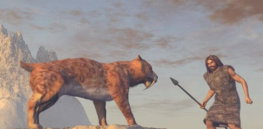
How did humans transition from saber-tooth tiger prey to masters of the planet?
Do you picture our hominin ancestors as hunters? I did. Not so much. “They were the hunted,” [paleoanthropologist Jeremy] DeSilva ...

Brain fMRIs can provide critical information — but they reflect human bias more than biological fact
Functional magnetic resonance imaging has transformed medicine. It allows non-invasive mapping of a patient’s brain regions to enable more accurate, ...
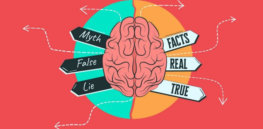
3 myths of how the brain works dispelled
As a neuroscientist, I see scientific myths about the brain repeated regularly in the media and corners of academic research ...

Evolution of literacy: How Protestantism and the Bible rewired Medieval brains
Of course, writing systems are thousands of years old, found in ancient Sumer, China, and Egypt, but in most literate ...

Methusalah dogs are pushing the boundaries of cognitive science
Living with people means dogs experience near-identical social and environmental influences on a daily basis. They show off a host ...

Statistics’ dark past? History of eugenics still haunts American universities
[University College London] was an epicenter of the early 20th-century eugenics movement—a precursor to Nazi “racial hygiene” programs—due to its ...
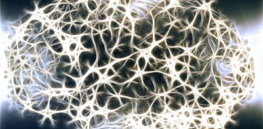
Could electromagnetic fields be the seat of human consciousness?
What if the electromagnetic fields generated by, but which are not identical to, the neuroanatomy of the brain, are in ...
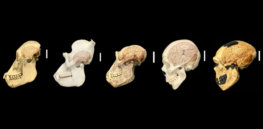
Evolution and the downsides of being so smart
With misinformation and disinformation about the pandemic, “cheap” and “deep” fakes of elected officials, and targeted ads and emotionally exploitative social media algorithms, ...

Evolution’s unpredictable dark side: Everything ‘natural’ is not always good
Given a choice, most people gravitate toward the natural over the artificial. After all, natural environments are preferable to garbage ...
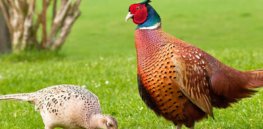
Nature vs nurture? Why humans are the only animal that has genders
As gender theorists like Judith Butler and Anne Fausto-Sterling have pointed out, sex and gender cannot be fully pulled apart. Facts about our sexed ...

When the brain adjusts what we see, is it distorting reality?
[From a few feet away, a manhole cover] looks circular, but this is because of some impressive perceptual machinery in ...
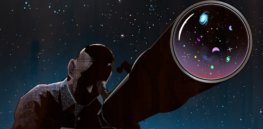
Interstellar evolution: Why life could emerge anywhere in the universe
[T]he impetus to go interstellar might have nothing to do with dreams of exploration or empire, but all to do with ...
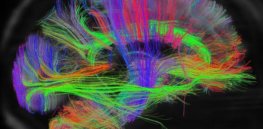
‘There’s so much going on.’ Why human brains may be too complex to be ‘understood’
The question of how we might begin to grasp the entirety of the organ that generates our minds has been ...
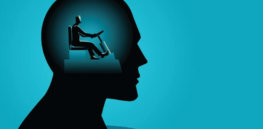
Do humans have free will? Neuroscientists seek solution to this ‘philosophical puzzle’
Clinical neuroscientists and neurologists have identified the brain networks responsible for this sense of free will. There seems to be ...

Searching for the origins of male aggression: Nature, nurture or both?
Most men are not especially violent, but most people who are especially violent are men. … Now, there’s no real doubt that ...

The rise and fall of genetic determinism
We’ve all seen the stark headlines: “Being Rich and Successful Is in Your DNA” (Guardian, July 12); “A New Genetic ...
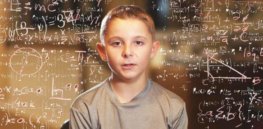
Do super high IQ children end up successful?
The original motive behind [IQ] tests was to get a diagnostic to select children at the lower ends of the ...
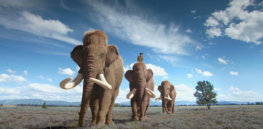
How can seemingly-unique animals be genetically the same?
More and more, biologists are discovering that organisms thought to be different species are, in fact, but one. A recent ...
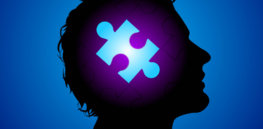
Why the idea of solving problems with unconscious thought is ‘fanciful’
The great French mathematician and physicist Henri Poincaré (1854–1912) took a particular interest in the origins of his own astonishing ...

Viewpoint: Space colonization could be a really bad idea for humanity
[W]ould colonization of space lead to a dystopia? In a recent article in Futures, which was inspired by political scientist Daniel Deudney’s forthcoming ...

Not so optimized? Human evolution was ‘totally accidental’
Archaeologist Ticia Verveer recently posted a thread on Twitter showing that customer complaints go way back. And I mean way ...
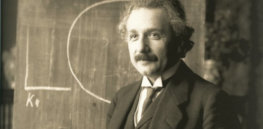
Is genius an attribute or a ‘circumstance’?
[T]he notion of genius as a capability a person can possess has come under attack recently in several ways. Megan ...
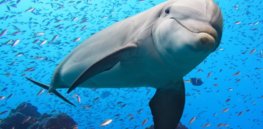
Searching for alien intelligence and how dolphins can help
The return to dolphins as a model for alien intelligence came in 1999, when SETI Institute astronomer Laurance Doyle proposed using information ...
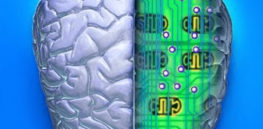
Our brain works ’10 million times slower’ than computers—so why is it better at some tasks?
[W]hy is the computer good at certain tasks whereas the brain is better at others? Comparing the computer and the ...

